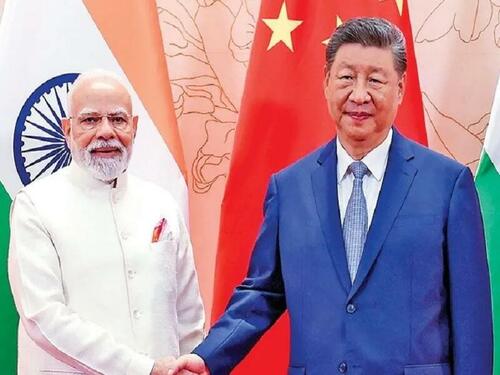Authored by Andrew Korybko via Substack,
The recent Sino-Indo rapprochement, which was inadvertently brought about by the US, accounts for why this year’s Chinese host agreed to include this in the Tianjin Declaration unlike how it was conspicuously omitted from late June’s SCO Defense Ministers’ draft statement.
The Tianjin Declaration that emerged from this year’s SCO Leaders’ Summit in that namesake Chinese city included condemnation of the Pahalgam terrorist attack. Late June’s SCO Defense Ministers’ Summit ended without a joint statement due to India’s objection to there being no condemnation of that attack within the draft, however, so something significant must have occurred in the intervening two months.
What happened was that “US Pressure Inadvertently Brought India & China Back Together”.
Trump’s favoritism of Pakistan since its springtime clash with India had already soured many in Delhi on the US, but that wasn’t enough to prompt a serious foreign policy recalibration.
It wasn’t until after the SCO Defense Ministers’ Summit that the US began actively trying to derail India’s rise as a Great Power via punitive tariffs that it imposed on ridiculous pretexts. That dispelled any remaining illusions about the US’ reliability, at least throughout the rest of Trump’s term, and led to China being seen in a new light.
While their border, trade deficit, and tech issues remain, they’ve respectively stabilized, cross-border trade has resumed, and some previously banned Chinese apps have begun reappearing in India.
This thaw, while modest, was responsible for China starting to see India in a new light too.
Their leaders then declared after their talks during Prime Minister Narendra Modi’s first trip to China in seven years that their countries are partners, not rivals, thus throwing a wrench into the US’ divide-and-rule plans.
It was hitherto popular to claim that the US was manipulating India against China, but Trump’s soft approach towards China on bilateral trade and his hypocritical reluctance to impose punitive tariffs on it for continuing to trade with Russia suggested that he was trying to manipulate China against India. Regardless of whichever variant of this grand divide-and-rule scenario one subscribes too, and it’s possible to believe both (whether in sequence or simultaneously), the fact is that these plans failed.
The Sino-Indo rapprochement that the US was inadvertently responsible for through its active attempts to derail India’s rise as a Great Power is also the reason why the SCO finally condemned the Pahalgam terrorist attack. As this year’s chair, China has extra influence over the SCO’s workings during the events that it hosts, so it could have therefore included condemnation of that attack in the draft statement accompanying late June’s Defense Minister’s Summit.
China didn’t do so due to the reasons explained here, namely to provoke India and signal its favoritism for Pakistan, so it follows that the Sino-Indo thaw which was inadvertently brought about by the US afterwards was why China reversed course and included it in the Tianjin Declaration. After all, failing to do so would have likely led to Modi only attending virtually on some “publicly plausible” pretext and possibly distancing India from the SCO afterwards, which would have weakened the group as a whole.
This “goodwill gesture” was thus mutually beneficial in terms of accelerating their incipient thaw and keeping the SCO on track to function as a complementary institution to BRICS for accelerating multipolar processes. To be sure, the Sino-Indo rapprochement is only in its opening stages while the SCO needs time to divide responsibilities with BRICS in order to avoid redundancy, so nothing game-changing is expected from either anytime soon. What was achieved in Tianjin, however, is still very impressive.
